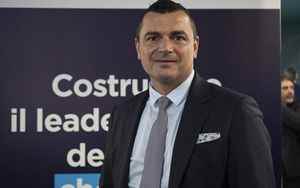(Finance) – “Our will today, as an asset manager, is to try to find one synthesis of all the values of sustainable development and not of the unsustainable recession. Sustainable development is based on the 17 UN objectives, but they can be summarized on two very large aspects: social cohesion and the ecological and energy transition. He told Finance Paolo ProliHead of Retail Division of Amundi SGR, on the sidelines of the Salone del Risparmio (SdR), underway in these days in Milan.
“The human being on the planet, since 1769 or since the invention of the steam engine, has been doing his business as if the resources were infinite – he explained – But no, the resources have run out80% of the energy we produce is generated from hydrocarbons – and therefore from climate-altering vectors, such as coal, oil and natural gas – and only 20% from non-climate-altering energy, such as nuclear, biomass and above all renewable energy (wind and photovoltaic). Hydrogenwhich today truly represents only 0.1% of the world’s total energy consumption demand, can become a game changer also for the future “.
In this scenario, Amundi intends to play an important role in directing investments towards a sustainable future. “We really want make private investors understandi that today the public capital that comes from the big taxation policies, monetary policies and the new programmatic development plans that are coming (such as the NextGenerationEU) must creating the future for the next generationsensuring that they still have the resources we are using ourselves today – explained Proli – We must have more impact precisely in energy production, starting from there we will be able to have an impact for the overall improvement of the development of humanity on the planet, to welcome the 10 billion people we will be in 2050 “.
However, the long-term goals sometimes collide with the short-term needs, as the war in Ukraine is bringing out. “We must never lose track – warned the manager of Amundi SGR – The true compass is a long-term horizon. We must transform the energy model of the planet from fossil coal to renewable: this must be the century of renewable energy and we need to stop emitting carbon dioxide into the atmosphere. We are 195 sovereign states, but the atmosphere is unique for the whole planet “.
“There are those who obviously in the short term are making us understand and intuit how much for example one geopolitical crisis and a war can make us shake our legs, and maybe think that for energy independence it is more useful to reopen the coal factories, but it would be a short-term myopic visionwhich would not help us transform the long-term energy model and have energy fuels that do not emit CO2 into the environment and therefore allow us to keep climate change mitigation under control “, he added.
Proli also said that “in 2015 in Paris we said to ourselves: we must not increase the earth’s temperature by more than one and a half degrees Celsius between now and the end of the century. Attention we are already +1.1 degrees Celsius and the IPCC projections are truly, unfortunately, of a heat curve that is increasing too rapidly. We must intervene and not be distracted by what is happening today in the short term – the war and the pandemic – but rather become aware of what is happening and accelerate global decarbonization of human activity on the planet “.
A problem with sustainable investments is often the lack of uniform and widely adopted parameters for evaluating them. “There measurability is key and dialogue is also a balance. We must try to have a simplification of the messages that allows us to speak the same language, so that the quantitative numbers are the same and a financial (and non-financial) analyst can interpret the data that come out not only from the balance sheet of the companies, but above all from the materiality matrix of what is the non-financial balance sheet of the companies themselves – said the manager – So we can see how they impact in terms of decarbonisation, in terms of gender equality, in terms of transparency and independence of the board of directors . That is, not only what is done, but how it is done and why it is done: this is truly the center ofimpact investing, i.e. making investments not only on the risk returnthat is, I earn more if I risk more, but onimpact returnwhere I earn more in the long term by making a long-term positive impact, which helps not only my investment but the planet to progress and not just to grow “.
